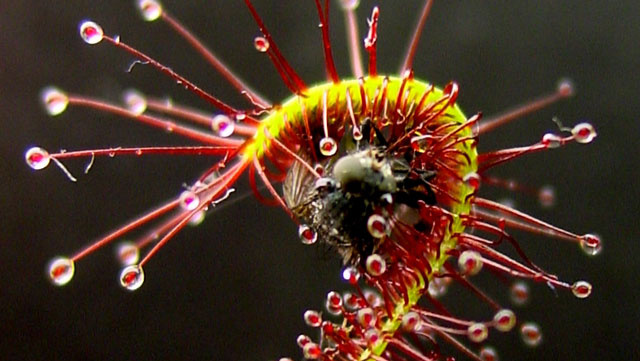Scientists Eavesdrop on Plants to Discover They "Talk" With Electrical Signals
2013.12.21

Do plants talk to each? Surely, not in a way you and I can understand, but it turns out, with more advanced tools, we are getting better at eavesdropping on their conversations.
Kat McGowan works on an area of research field that has "leapfrogged from electrifying discovery to decisive debunking to resurrection." Plant "language" ranges from chemicals released into the air to electric pulses from individual plant cells.
McGowan writes about how scientists listened into the electric signals of a wounded plant in one study published in Nature earlier this year .
To prove that electrical signals are at work, Ted Farmer's team placed microelectrodes on the leaves and leaf stalks of Arabidopsis thaliana (a model organism, the plant physiologist's equivalent of a lab rat) and allowed Egyptian cotton leafworms to feast away. Within seconds, voltage changes in the tissue radiated out from the site of damage toward the stem and beyond. As the waves surged outward, the defensive compound jasmonic acid accumulated, even far from the site of damage. The genes involved in transmitting the electrical signal produce channels in a membrane just inside the plant's cell walls; the channels maintain electrical potential by regulating the passage of charged ions. These genes are evolutionary analogues to the ion-regulating receptors that animals use to relay sensory signals through the body.
Read more of the very interesting study over at: [Quanta Magazine Photo via Noah Elhardt/ Wikimedia Commons.]More Articles
Copyright © Fooyoh.com All rights reserved.